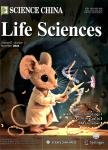A microRNA encoded by HSV-1 inhibits a cellular transcriptional repressor of viral immediate early and early genes
A microRNA encoded by HSV-1 inhibits a cellular transcriptional repressor of viral immediate early and early genes作者机构:Institute of Medical Biology Chinese Academy of Medical Sciences Peking Union Medical College First Affilliated Hospital of Kunming Medical University Chinese Pharmacopoeia Commission
出 版 物:《Science China(Life Sciences)》 (中国科学(生命科学英文版))
年 卷 期:2013年第56卷第4期
页 面:373-383页
核心收录:
学科分类:1007[医学-药学(可授医学、理学学位)] 100705[医学-微生物与生化药学] 1001[医学-基础医学(可授医学、理学学位)] 100103[医学-病原生物学] 10[医学]
基 金:supported by the National Natural Science Foundation of China (30670094, 30700028) National Basic Research Program of China (2012CB518901, 2011CB504903)
主 题:herpes simplex virus I (HSV-1) microRNAs (miRNAs) cellular transcriptional repressor Kelch-like 24
摘 要:Viral microRNAs are one component of the RNA interference phenomenon generated during viral infection. They were first identified in the Herpesviridae family, where they were found to regulate viral mRNA translation. In addition, prior work has suggested that Kaposi's sarcoma-associated herpesvirus (KSHV) is capable of regulating cellular gene transcription by miRNA. We demonstrate that a miRNA, hsvl-mir-H27, encoded within the genome of herpes simplex virus 1 (HSV-1), targets the mRNA of the cellular transcriptional repressor Kelch-like 24 (KLHL24) that inhibits transcriptional efficiency of viral imme- diate-early and early genes. The viral miRNA is able to block the expression of KLHL24 in cells infected by HSV-1. Our dis- covery reveals an effective viral strategy for evading host cell defenses and supporting the efficient replication and prolifera- tion of HSV- 1.



